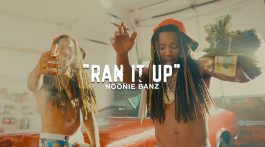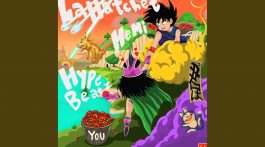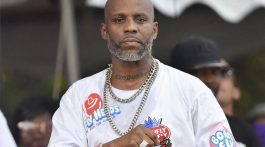The Death of the Disc
As we approach a new day and age, we come to realize that we have certain things in our life only for the nostalgic feel.For example, the CD/DVD, its almost as obsolete as the ‘45 in my perspective.The transfer of information and media has been evolving in the last couple of decades, and seems to move faster with each passing moment.DVD’s have a stronger hold on their respective market,but CD’s have almost been isolated to bootlegging and upstart artists trying to promote.Stores like Spec’s and F.Y.E. have seen near demise due to the downward spiral in physical sales of CDs.Today, the classic story of rising rappers selling mix-tapes from the trunks of their cars has been replaced with the swag of young artists sending links to fans and bloggers. Current stars like A$AP Rocky,Kendrick Lamar and Odd Future owe a lot of their success to the ability to give away music online, and even established artists like Lil Wayne, Kanye West and 50 Cent have seen their profiles and profits rise from popular free releases.
P2P FileSharing
It started around 1999,with Napster.It was originally founded as a pioneering peer-to-peer file sharing Internet service that emphasized sharing audio files, typically music, encoded in MP3 format.Basically, when someone searched for a file, the server searched all available copies of that file and present them to the user. The files would be transferred directly between the two private computers.Users found it easier to get and give new music,to and from their friends.After a while we’ve seen album sales drop due to the convenience of getting an album online.
Related Article: Hiphop’s lifeline: Jay Z Kendrick Lamar Meek Mill & Battle Raps
“In this tough economy a lot of the fans are looking to save money and get your project for free,” Torae,an underground rapper from New York, points out, having released over four projects to retail. “Sometimes the fans are just trying to get to the music—they may not have $10.00 to drop on an album, but they still want the project so they just go get it however.”
Naledge of independent Rap duo Kidz In The Hall , credits the Internet as “the major platform that we used to launch our career.” for independent artists like Kidz In The Hall, these outlets were tailor made to fit free-wheeling infrastructure.The ability to host files for free is also a keystone for music blogs, many of which would see their server costs grow exponentially if they had to host and distribute every song or mixtape they covered.
On the downside, most P2P sites are under litigation for copyright infringement.The act of file sharing is not illegal and peer-to-peer networks are used for legitimate purposes. The legal issues in file sharing involve violating the laws of copyrighted material. This took from the profits and sales of artists.In mid-2000 Artists Against Piracy, a musician-driven coalition was formed ,hoping to play a role in determining how music is distributed on the Internet, announced its formation and launched a campaign with full-page ads in the New York Times, Los Angeles Times.Also receiving major endorsements from over 70 major artists, including hip hop heavyweights,D.M.X. and Dr.Dre. Most companies survived on claiming ignorance to what users were uploading,while the major companies like Napster and Limewire were hit with multi-million dollar lawsuits.Until this day the fight for piracy still exists as file sharing sites pop up seemingly every other month.
Digital Sales vs Physical Sales
For the week ending July 28,2013, U.S. album sales totaled 4.68 million the lowest weekly total since the inception of Nielsen SoundScan in May 1991.The previous record low was only the prior week when sales were 4.71 million units.This year already, there are nine weeks under the 5 million units album sales mark, with the last five weeks marking the longest consecutive period the industry has gone without scanning more than 5 million units."This is the year that CD sales bottom is falling out", says CEO Mike Dreese. So far this year, CD sales are down 14.1% to 88.8 million from the 103.3 million scanned in the same time period in the corresponding period last year, according to Nielsen SoundScan.
With public access everywhere to the internet, people are able to conveniently download their favorite song.On the other hand, it makes going to the CD store and paying for a whole album redundant.Plus, mp3s don't skip. Also, its hard to compare a Compact Disc to a device that can potentially hold tens of thousands of songs.
This summer we’ve seen Jay-Z go platinum without putting one single CD in anyones hands.His wife,Beyonce, would later on release a surprise album,and once again,certified gold, with no physical copies.Itunes and companies similar holding exclusive rights to projects and booming with the ability to buy single songs, puts a choke hold on the physical market.Releasing digitally seems to be a more convenient, broader way for artists to get a name.Its a trend trend that's been picking up, leaving the physical copies on the shelf.With fans and consumers everywhere converting to an MP3 player, the compact disc will soon cycle out.
According to Digital Music News, CD’s will be completely gone from our lives by 2022. Which is backed by a recent study from PriceWaterhouseCooper, who predict physical music sales will be down by 13% by 2017 -but overall music sales (also counting digital sales and concert revenue) will grow about 1% each year in that time. So basically, CD’s are rapidly being replaced in the music biz by streaming technologies.
Related Article: 50 Cent disses Dr Dre’s Beats by Dre Headphones
Remember back in the day,recording your favorite songs to a cassette,from the radio? If you remember doing this, you are a contributor to the creation of the mixtape.With the internet and sites like DatPiff.com and LiveMixtapes.com, an artist these days,can reach demographics across the world.Lil Wayne of Cash Money records is the epitome of how mixtape can accelerate a career,dropping twice as many mixtapes as albums.
Last year, California rapper, Nippsey Hu$$le put out his long-anticipated album,” Crenshaw, and sold two hundred physical copies priced at $200. The project was offered with an autographed Cd on other fan incentives, such as priority access to new material, or private concerts."It's time we acknowledge what we all know:the music is free. We shouldn't force people to buy it, what we should do is create different methods to monetize the connection"Nippsey says, in an interview with Forbes Magazine .With rumors that Eminem is releasing a limited edition offering of "The Marshall Mathers 2" LP for $300, we will see if this trend continues.














No Comment